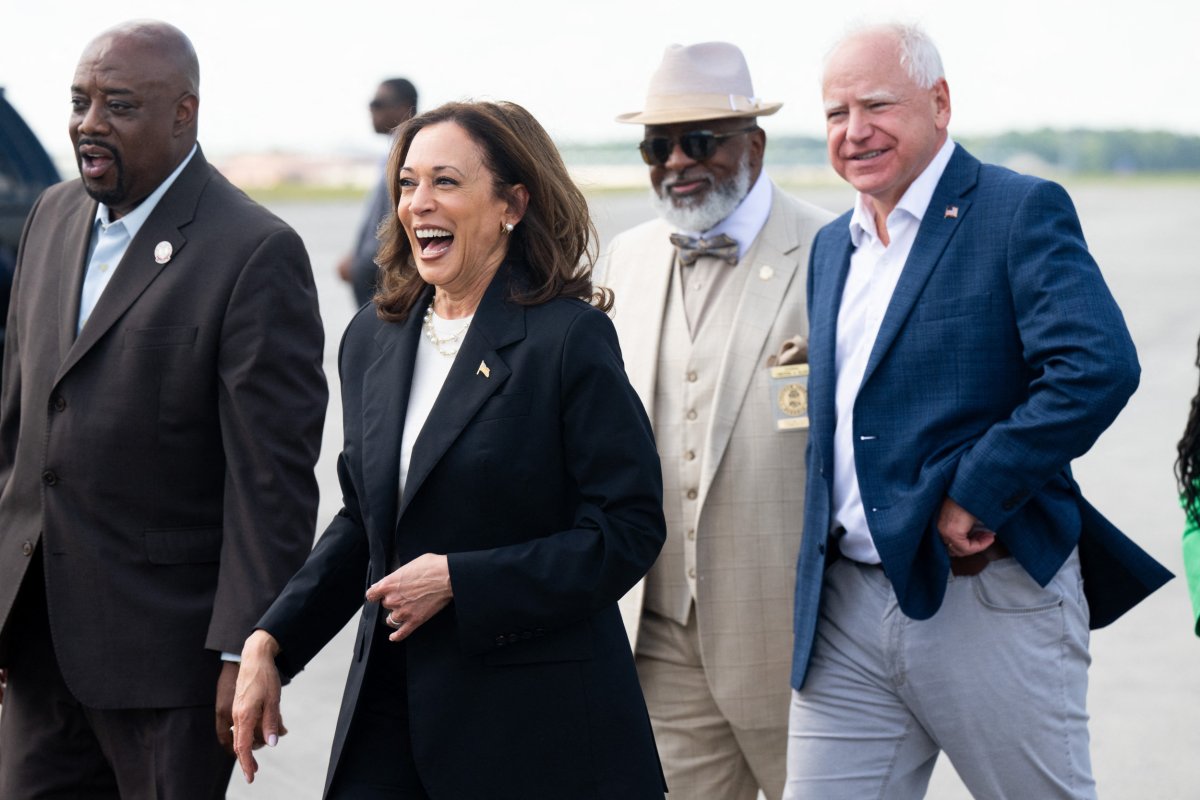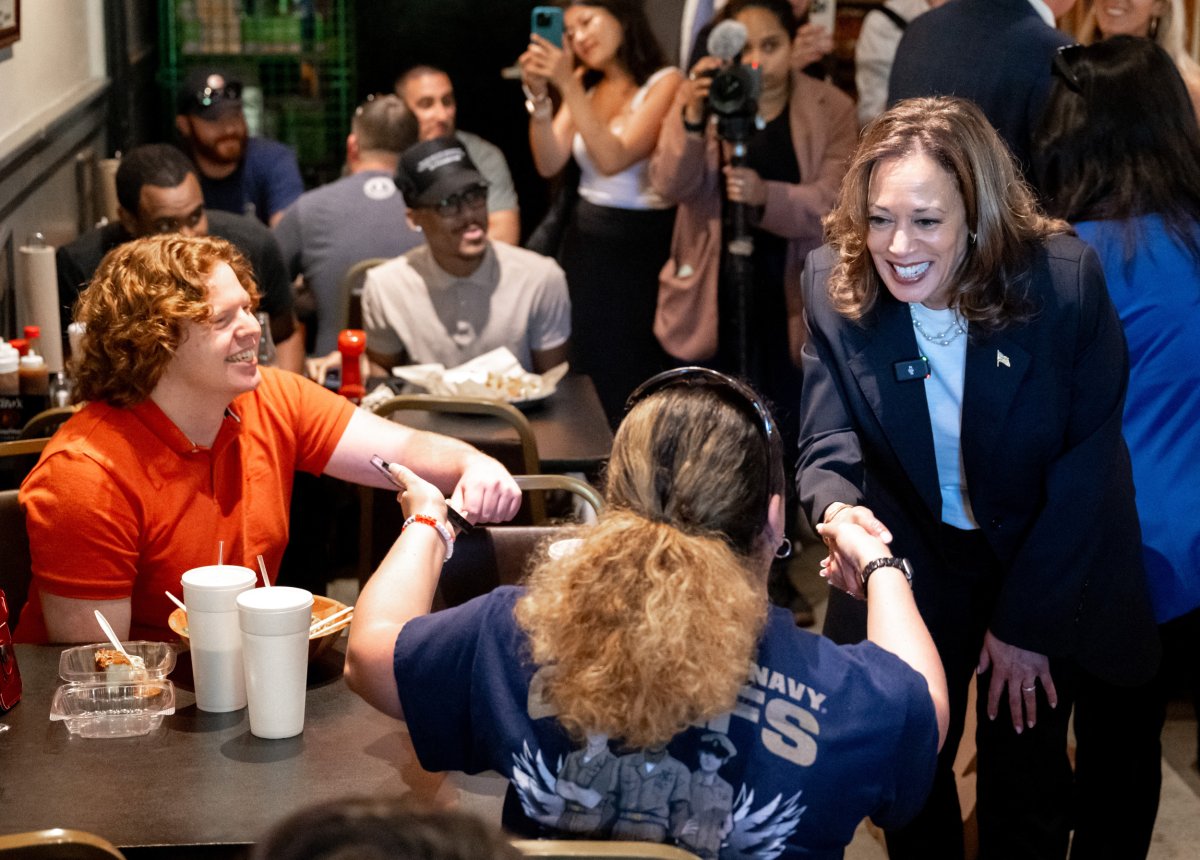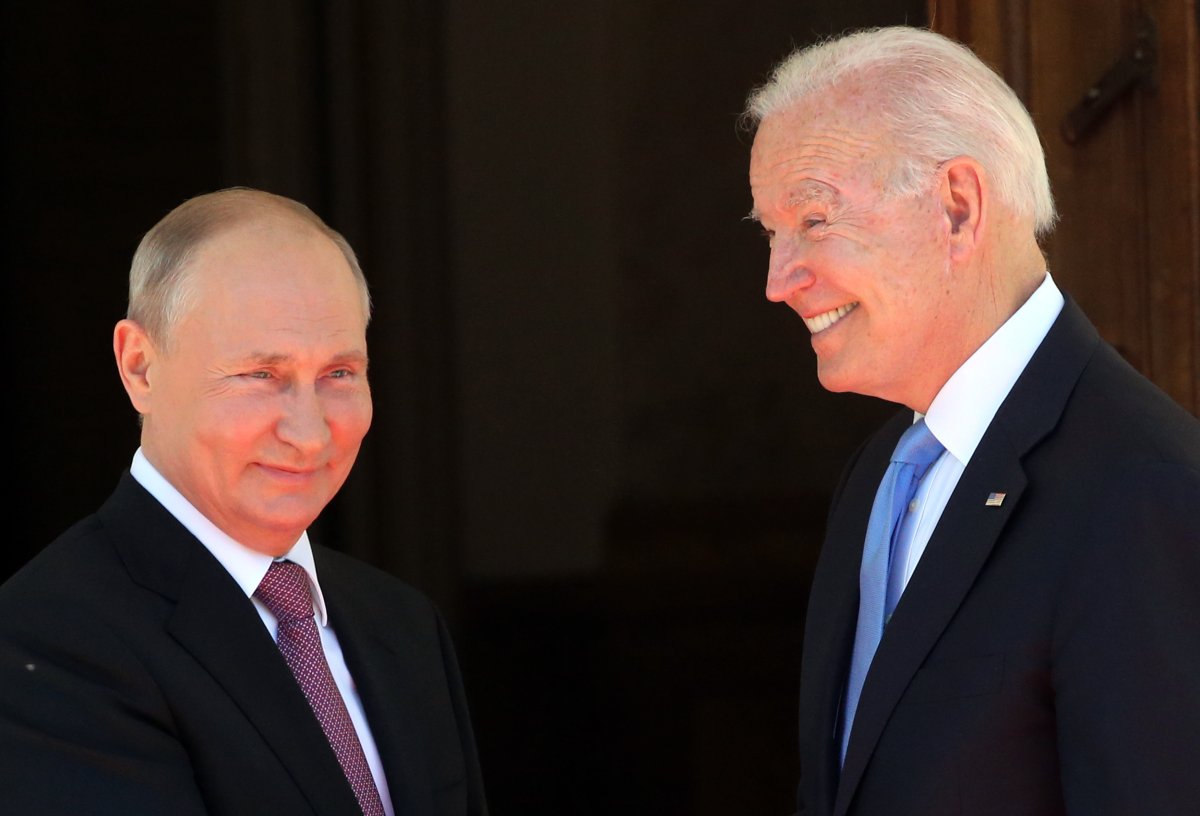Kamala Harris and Tim Walz have embarked on a two-day bus tour of southeast Georgia, where they’ll try to win the hearts of voters in the battleground state’s rural counties. The Democrats‘ goal is to have the Peach State vote blue again in November, as it did in 2020 for the first time in nearly three decades; whether that’s achievable this year, is far from certain.
Despite the vice president currently trailing Donald Trump by several points in Georgia, the efforts that her campaign is making in the state show that Harris has far from given up on the state.
According to a note shared by the Harris-Walz team with Newsweek, the Democratic campaign in Georgia is the “largest in-state operation of any Democratic presidential campaign cycle,” with over 190 Democratic coordinated campaign staff in 24 coordinated offices across Georgia. That’s more than double the number of offices Biden had four years ago.

U.S. Vice President and Democratic presidential nominee Kamala Harris and her running mate Minnesota Governor Tim Walz in Savannah, Georgia, August 28, 2024. They visited Liberty and Chatham counties on Wednesday as part of their two-day campaign bus tour.
SAUL LOEB/AFP via Getty Images
These offices are located in rural counties like Washington and Jenkins, as well as the outer Atlanta metro counties, including Forsyth and Fayette. The decision to tour more rural areas of Georgia instead of honing in on the one blue dot in the red state—Atlanta—shows the Harris team is focused on improving her margins with urban, suburban and rural voters, and sway the state in her favor.
The Importance of the Rural Vote in Georgia
Crucially, the support of rural voters in Georgia would give Harris a more solid victory than the very slim one obtained by Joe Biden four years ago, when he won the state by about 11,800 votes.
In 2020, Biden won Georgia with 49.47 percent of the vote over Trump’s 49.24 percent. In 2016, Trump had won the state with 50.4 percent of the vote over Hillary Clinton‘s 45.3 percent. In 2012, Republican nominee Mitt Romney won Georgia with 53.3 percent over Barack Obama‘s 45.4 percent.
A recent New York Times/Siena College poll, conducted between August 8 and 15, showed that Trump was leading Harris in Georgia among likely voters, 50 percent to 46 percent. Trump was previously ahead of Biden with a seven percentage point lead.
“Campaigning in Southeast Georgia is critical as it represents a diverse coalition of voters, including rural, suburban, and urban Georgians—with a large proportion of Black voters and working class families,” the Harris campaign note shared with Newsweek reads. “This area is a priority for the campaign.”
Harris and Walz visited Liberty County on Wednesday, and are scheduled to stop in Savannah, Chatham County, on Thursday, though an official itinerary has not been released.
The duo dropped in on band practice at Liberty County High School in Hinesville on Wednesday, where Harris told students they were counting on their generation “to propel our country into the next era of what we can do and what we can be.”
A map created by Newsweek shows the counties Harris and Walz have visited so far alongside how counties in Georgia voted in recent elections. Joe Biden managed to win some rural areas, and repeating the feat will be crucial to Harris’ chances in the state.
“Savannah and Chatham County are an important base of potential Harris/Walz votes,” Jennifer McCoy, a professor of political science at Georgia State University, told Newsweek.
“Biden did well there in 2020. Now Georgia is back in the battleground camp again—after Biden dropped out—and the Harris-Walz campaign is making a big play to win it,” she said.
In 2020, Chatham and Liberty counties voted for Biden, while four years before they voted for Clinton. With an estimated population of 290,000 according to the U.S. Census Bureau, Chatham is the most populous county in the state outside Atlanta’s metro. Both areas voted blue in the last election cycles.
Talking to reporters on Wednesday, Savannah’s mayor Van Johnson said: “We believe very clearly that Georgia is in play. We don’t win Georgia without Savannah and Coastal Georgia, particularly Savannah overperforming.”
What Democrats Need To Win Georgia
Thomas Gift, associate professor of political science in the School of Public Policy at University College London, U.K., thinks Harris needs to prove to Georgia voters that “she’s more than a coastal elite—or a ‘San Francisco liberal’—as her critics would say,” as he told Newsweek.
“Branching out beyond the major metropolitan areas allows the campaign both to speak to rural voters, as well as gives the ticket a litany of photo ops. Expect lots of pictures of Tim Walz in jeans and a camo hat,” Gift said.
“It’s the exact opposite of what Hillary Clinton did in 2016 when she wrote off large swathes of the country as ‘deplorables.’ Harris and Walz don’t need to win rural areas, but even peeling off a few percentage points of votes in these areas could prove essential in states like Georgia,” he said.
The tour of southeast Georgia has more in common with what Bill Clinton did in 1992, Mike Tappin, an Honorary Fellow at Keele University and co-author of American Politics Today, told Newsweek.
When Clinton won the Democratic Party presidential nomination at Madison Square Garden, “he made a political decision to drive across the country, stopping at small towns, large towns and factory gates in over a dozen swing states, pressing the flesh with voters as he made his way back home to Little Rock,” he said.
“This is exactly what Harris and Walz are going to be doing on their trip. They will be showing themselves to voters in a swing state, and pointing out that Harris’ economic proposals regarding families and tax breaks will help people in Georgia, one of the poorest states in the country where 14 percent of the population live below the poverty line,” he said.
“This will appeal to both blue-collar voters and Georgia’s substantial Black community. Harris will be hoping that by following Clinton’s tactic back in 1992, she can replicate Biden’s surprise victory once again.”

U.S. Vice President Kamala Harris greets patrons at Sandfly Bar-B-Q restaurant in Savannah, Georgia, August 28, 2024. While Trump is still leading Harris in polling, the vice president has improved her margins compared to Biden.
SAUL LOEB/AFP via Getty Images
For McCoy, the same issues that are important to voters across America are important to rural Georgians—health care, prices, housing access and affordability—and this is what Harris and Walz would need to focus on in the state.
“But in rural Georgia, access to healthcare and especially high maternal mortality rates are made worse by recent hospital closures and lack of OB/GYNs [obstetrician gynecologists] in many counties,” McCoy said. “The state’s extremely restrictive abortion law is also influencing OB/GYNs decisions to not come to Georgia for education and for jobs.”
Harris has emphasized the issues of reproductive rights in previous visits to the state and is expected to do so again this time. But would that be enough to convince Georgia voters to cast their ballots for Harris in November and replicate the 2020 victory?
“The Democrats 2020 victory was fueled by an extremely aggressive get-out-the-vote effort and visibility of former gubernatorial candidate Stacy Abrams, as well as the opportunity to have two Senate elections simultaneously in a run-off the day before the January 6 election,” McCoy said.
“Georgians knew what was at stake in the presidential race, but also that control of the Senate was at stake in that run-off,” she said. “Democrats have a chance this year in Georgia, demonstrated by the enthusiasm so far in increased volunteers and voter registration since July 20, but it will still be a lot of hard work for them to win.”
The two-day bus tour will cap off with a rally in Savannah on Thursday. On the same day, Harris and Walz will sit for their first joint interview with CNN anchor Dana Bash.









